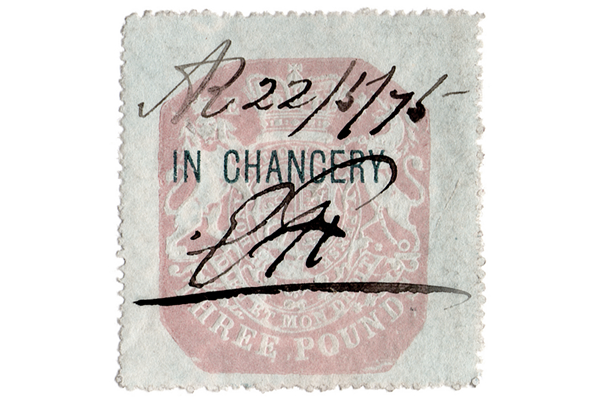
Stamp Duty History In More Detail
A few years after the introduction of the duty, almost four million stamps were issued in England, and the success of Stamp Acts as a method of raising government revenue were soon introduced in other countries in Europe, including France and the Netherlands, and continue to this day in a form only slightly different to the original. It was the attempt, in 1765, to introduce Stamp Duty to the American colonies that produced to the ‘no taxation without representation’ slogan, which ultimately led to the American War of Independence.
Later, the duty was extended from legal documents to other paper products, such as newspapers and pamphlets, lottery tickets, playing cards and dice, gloves and hats, as well as hair pomade, perfume and gold or silver plated articles. To begin, the duty was levied as a fixed amount, but after 1793 it was levied at a rate according to the item’s value.
Stamp Duty has been abolished for many items, such as a one penny charge on cheques, in the last 100 years, and was effectively abolished in 2003, when it was replaced for property transfers by the Stamp Duty Land Tax (SDLT). In Scotland in 2015, Stamp Duty was replaced by the introduction of a new Land and Buildings Transaction Tax.
SDLT has, since the Finance Act of 2003, applied to all land transfers and transactions on a sliding scale. The tax is levied from a threshold of £125,000 to transactions of £1.5 million and above. Even if the transaction does not incur any tax to be paid, it is still a legal requirement to send a tax return to HM Revenue & Customs (HMRC), and failure to do so could lead to a fine being imposed.
In the UK, there has recently been a steep increase in house price inflation, leading to greater revenue for HMRC as property prices moved from a lower level of duty to a higher band. Various governments and their chancellors have adjusted the threshold slightly in recent years, first from £60,000 to £120,000 in 2005, then by a further £5,000 to £125,000 in the following year. In 2008, the government announced a one-year ‘holiday’ from Stamp Duty, for the 12 months from September that year until the following September. In subsequent budgets, further changes to the duty were introduced to improve the situation for first-time buyers.
Although there are constant calls for the government to abolish Stamp Duty completely, and various political promises to reform it in the hope of winning votes, not much has been done to favour property buyers. Stamp Duty revenue rose from £3.5 billion in 2002-2003 to £6.5 billion in 2007-2008. The loss of this revenue would mean that it had to be found from somewhere else.

Single Property
Stamp Duty Land Tax (SDLT) is payable on all UK property purchases the charge applies to all purchases of houses, flats and other land and buildings over a certain threshold. To find out how much it will cost you to use our Stamp Duty Calculator

Additional Property
Stamp duty tax liability (SDLT) increased from April 2016 now for anyone purchasing additional property there is an additional 3% stamp duty surcharge. A new starting threshold of £40,000 means the majority of buy to let purchases now attract this additional charge.

